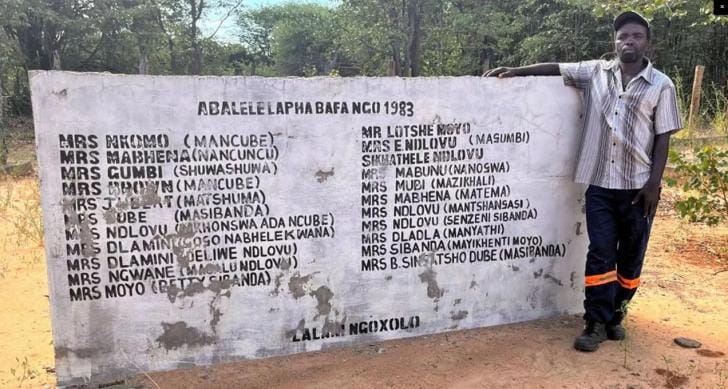The Zimbabwean government has announced plans to pay compensation to victims of the Gukurahundi massacres, with community-based hearings scheduled to begin in Matabeleland North and South on June 26, 2025. The process, led by the National Council of Chiefs, represents a significant step towards reconciliation and justice more than four decades after the atrocities of the 1980s.
Zimbabwe’s Deputy Chairman of the National Council of Chiefs, Chief Fortune Charumbira, revealed the details at a press conference in Bulawayo earlier this week. He confirmed that traditional leaders will oversee confidential, victim-centred hearings across affected communities, ensuring that each case is heard in accordance with local cultural practices.
“The hearings start on June 26. We expect each chief to start hearing from the victims at that time,” Chief Charumbira said.
Compensation on a Case-by-Case Basis
Chief Charumbira said the government was prepared to offer compensation, both material and moral, but the amount of compensation would vary depending on the circumstances of each case.
“When legitimate cases arise that require compensation, the government is ready. But the value of each case will depend on their individual merits,” he explained.
When pressed for details on the compensation framework, Charumbira said President Emmerson Mnangagwa would ultimately decide on the scale and terms.
“Trust the president. He has committed to compensation. But we cannot predetermine how much; one person may want three head of cattle, another may want fifteen head of cattle,” he added.
Traditional Structures to Guide the Process
The process will be led by local chiefs with the support of a 14-member community panel, including elders, women, youth, religious figures and advisors. All drawn from the relevant chiefdoms, these individuals will help maintain cultural integrity throughout the hearings.
All testimonies will be documented using laptops and cameras, with data securely stored under the authority of the presiding chief. While victims living abroad will not be allowed to testify virtually, Chief Charumbira said they could appear in person later this year.
“This is a quasi-judicial process. No one can testify from Botswana or South Africa. But if they wish, they can return home and rest in September,” he said.
Zimbabwean President to Make Final Decision
Preparations for the outreach began in earnest after the National Council of Chiefs Steering Committee met on June 13, with state awareness meetings held the following day. Community education campaigns, which began on May 27, are ongoing to inform residents about the upcoming hearings.
The entire process is expected to take up to six months, but the time will depend on how many cases are presented in each district.
When asked if the findings would be made public, Chief Charumbira said a final report would be submitted to the President who would determine the next steps.
“We will convey our findings to the President. From there, he will decide what to do,” he stated.
A Turning Point for Healing and Reconciliation
Chief Charumbira described the process as a historic opportunity for national healing, stressing the importance of openly discussing Gukurahundi after decades of silence.
“Before 2017, it was taboo to talk about Gukurahundi. Now, the President has made it possible for people to speak and be heard,” he said, calling on all affected families and communities to participate.
He added that even if a victim’s relatives are no longer alive, neighbours and community members can provide testimonies because the collective memory of what happened remains strong.
While some human rights groups have previously advocated for an independent international investigation into the massacres, this initiative represents a state-led approach focused on truth-telling, cultural accountability and reparations. It is seen by many as a long-awaited acknowledgement of one of Zimbabwe’s darkest periods.



